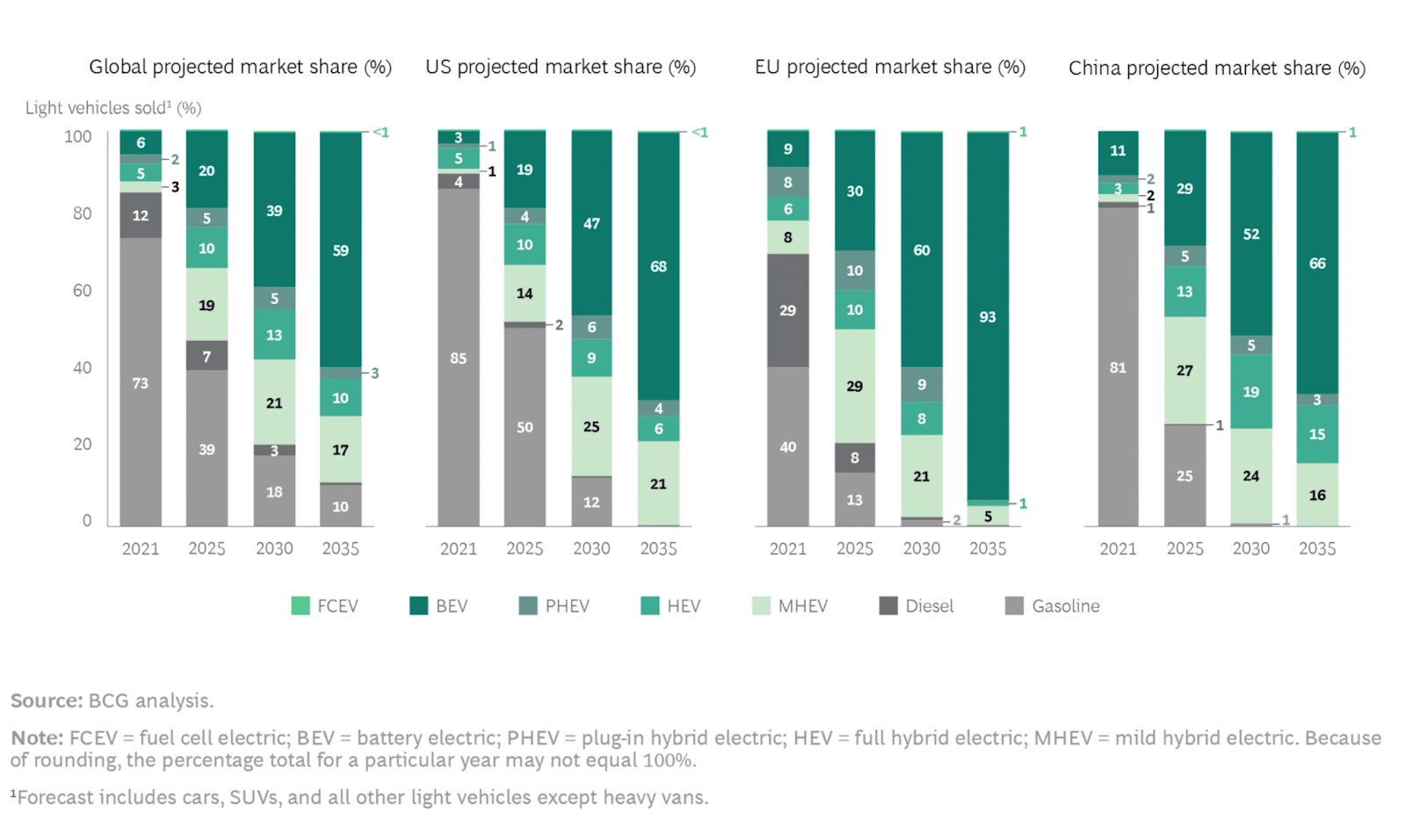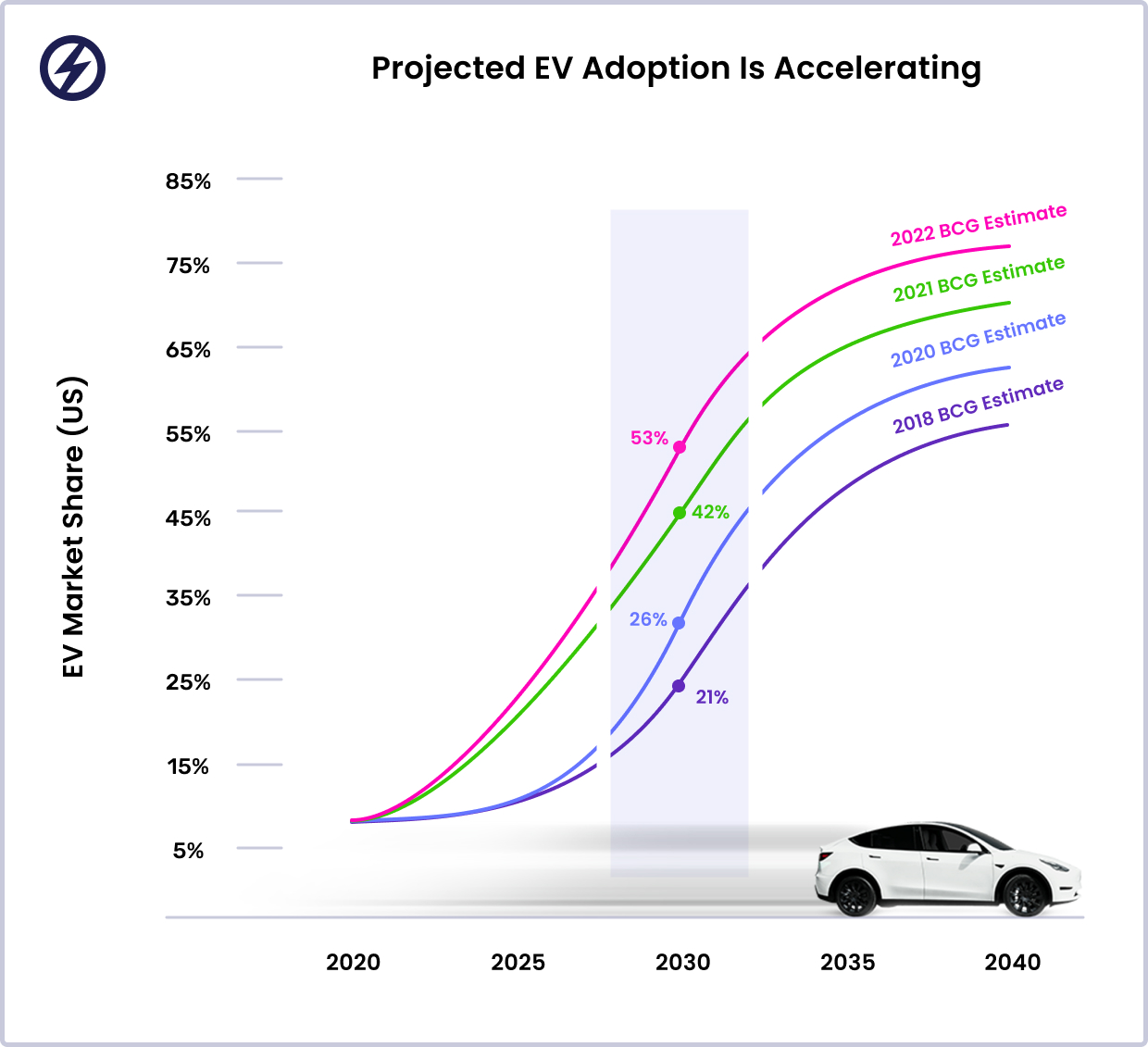
Almost every year since 2018, Boston Consulting Group (BCG) has released a market projection for EV adoption. The analysis is thorough and thoughtful, with thousands of words of supporting detail on how the projections are designed.
Each report shows stacked bar charts that, year after year, demonstrate the accelerating growth of EV sales. The 2022 report is no different. Global EV adoption is projected to multiply by 2025, 2030 and 2035 – fueled by sales in major auto markets like the US and China.

Many of us don’t need detailed analysis to understand this. We can see it on our neighborhood streets, where EV counts are gaining momentum each month. Even two years ago, it was noteworthy to see an EV on my way to the store. Now, I hardly notice anymore.
EV Adoption Models Are Accelerating
It can be easy to get lost in the data and projections from the latest 2022 report. The most interesting thing, however, how the projections compare over the years. In other words, comparing the 2018 report to the 2020 report to the 2022 report. EV projections have continually been revised to increase the rate of adoption. It just goes to show that interest in EVs is accelerating faster than anticipated.EV projections have continually been revised to increase the rate of adoption. It just goes to show that interest in EVs is accelerating faster than anticipated.
We combined the last 4 projections to demonstrate how they are changing over the years. Since we spend most of our time focused on the American EV market, we broke out US sales projections from each of these BCG reports.

EV sales projections for 2030 changed each year that BCG released a report. Sales projections in the US for 2030 continued to grow to:
- 21% in the 2018 report
- 26% in the 2020 report
- 42% in the 2021 report
- 53% in the 2022 report

